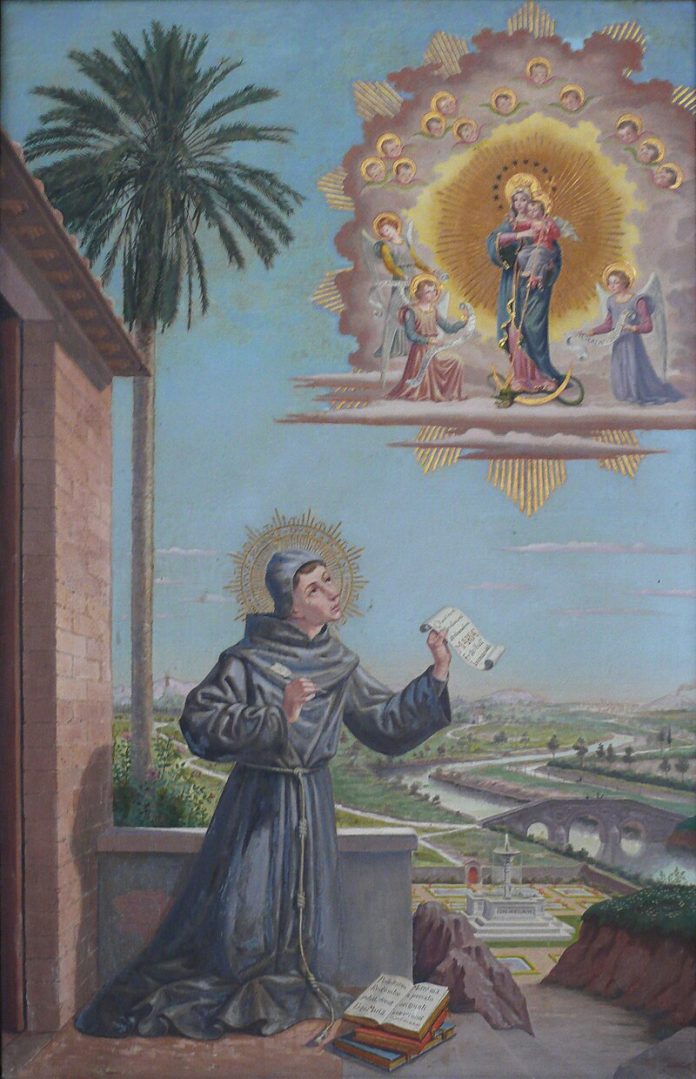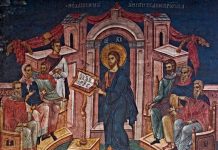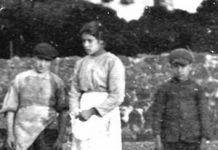The 8th of November is the liturgical memorial of Blessed John Duns Scotus. In his apostolic letter on the occasion of the seventh century of the Death of Blessed John Duns Scotus, given in Rome on October 28, 2008, Pope Benedict XVI described him as a most learned and devout man.
He was born in Duns in the Scottish Borders, in late 1265 or early 1266. His name signifies that he was John, the Scot from Duns, the son of Ninian of Duns. He started his excellent education in the monastic abbeys of Melrose and Dryburgh whereas at 13 years of age, then at the friary school in Haddington in Berwickshire. His paternal uncle Elias of Duns in 1278 was elected Custos of Newcastle, which Custody contained all of Scotland. As a 15 year-old, John was admitted to the Franciscan Order in Dumfries thanks to his uncle, even if he was well below the canonical age of 18.
Traditionally it is said of him that on Christmas night in 1281, as he was preparing for his religious profession, John had a vision of the Child Jesus appearing in his arms, reflecting and firing his love for Jesus and his Blessed Mother. When he completed his studies, John was ordained a priest at the age of 25, on March 17th, 1291 by Oliver Sutton, the Bishop of Lincoln in the Church of St. Andrew in Northampton. Due to his apt preparation he was immediately given the faculties to hear confession, which in those days were not given automatically but were given to those trusted for their sound doctrine and good advice.
After his ordination he went to study in Oxford as well as Paris and should have earned his promotion as Regent Master in 1303. However, he was prevented from this position due to his support for Pope Boniface VIII in his conflict with King Philip the Fair of France. John’s name is 19th on the list of “non-appellants” who sided with the Pope. John left Paris until the death of Pope Boniface weakened the dispute between the French monarch and the Papacy.
In November 1304 Gonsalvo of Spain, John’s former teacher, wrote recommending him to be sent to the Friars in Paris. John was received back to studies, and the 26th of March 1305 he finally and rightfully became Regent Master of the Franciscan school at the university of Paris, where John wrote extensively on his Christocentric theology, in which the Incarnation of the Word is presented as the highest of God’s works (summum opus Dei), willed from the beginning of creation, and not merely as a remedy for sin. It needs to be said that his famous defence of the doctrine of the Immaculate Conception of Mary, is a the result of this central position of Christ in creation. Hence, for Christ to be the perfect mediator of redemption, he must have mediated that redemption perfectly to at least one person. Indeed Christ did, to his Mother, whom he protected from all stain of sin, even original sin, since it is more perfect to protect from sin altogether than it is to free from sin after it has been contracted. This doctrine John staunchly defended in Paris in the first months of 1307.
In order to appreciate John’s singular contribution on this point let us cherish what he wrote in his Lectura III Sent., 123: Christ was the most perfect mediator. Therefore he exercised the highest degree of mediation in favour of another person. Now he could not be a most perfect mediator and could not repair the effects of sin to the highest degree if he did not preserve his Mother from original sin (as we shall prove). Therefore, since he was the most perfect mediator regarding the person of his Mother, from this it follows that he preserved her from original sin.
In July of 1307 John left Paris for Cologne to reorganise the Friars’ studium there, as well as to confront heresy. Due to the effort he exerted on himself, he became so vulnerable tat he succumbed to disease on 8th November 1308, just 43 years old. Pope John Paul II confirmed the cult of Blessed John Duns Scotus on 20th March 1993.
This great theologian teaches us how important it is to be faithful to the Bible and the authority of the Church. When referring to the teaching of the Immaculate Conception, which Duns Scotus defended with his utmost force, Pope Benedict tells us in his his apostolic letter marking the occasion of the seventh century of the Death of Blessed John:
After having proven with various arguments taken from theological reason, the very fact that the Blessed Virgin Mary was preserved from original sin, he was absolutely ready also to reject this conviction should it not be in harmony with the authority of the Church, saying: “We can with probability attribute to Mary all that has the greatest perfection, provided it is not opposed to the authority of the Church or the Scriptures.
Let us pray to Doctor subtilis, “Subtle Doctor”, as Blessed John Duns Scotus is known:
Blessed John Duns Scotus, you strove to understand, explain, and defend the truths of the holy Christian Faith in the light of human reason. For all truths, natural and supernatural, are from one and the same Source: the eternal God who is truth and light and love. And so you proposed and expounded the perfect purity and holiness of the Blessed Virgin Mary in the first moment of her Immaculate Conception. By her intercession and yours, may the Most Holy Trinity grant the conversion of sinners and the favor of: [add your request] Amen.










